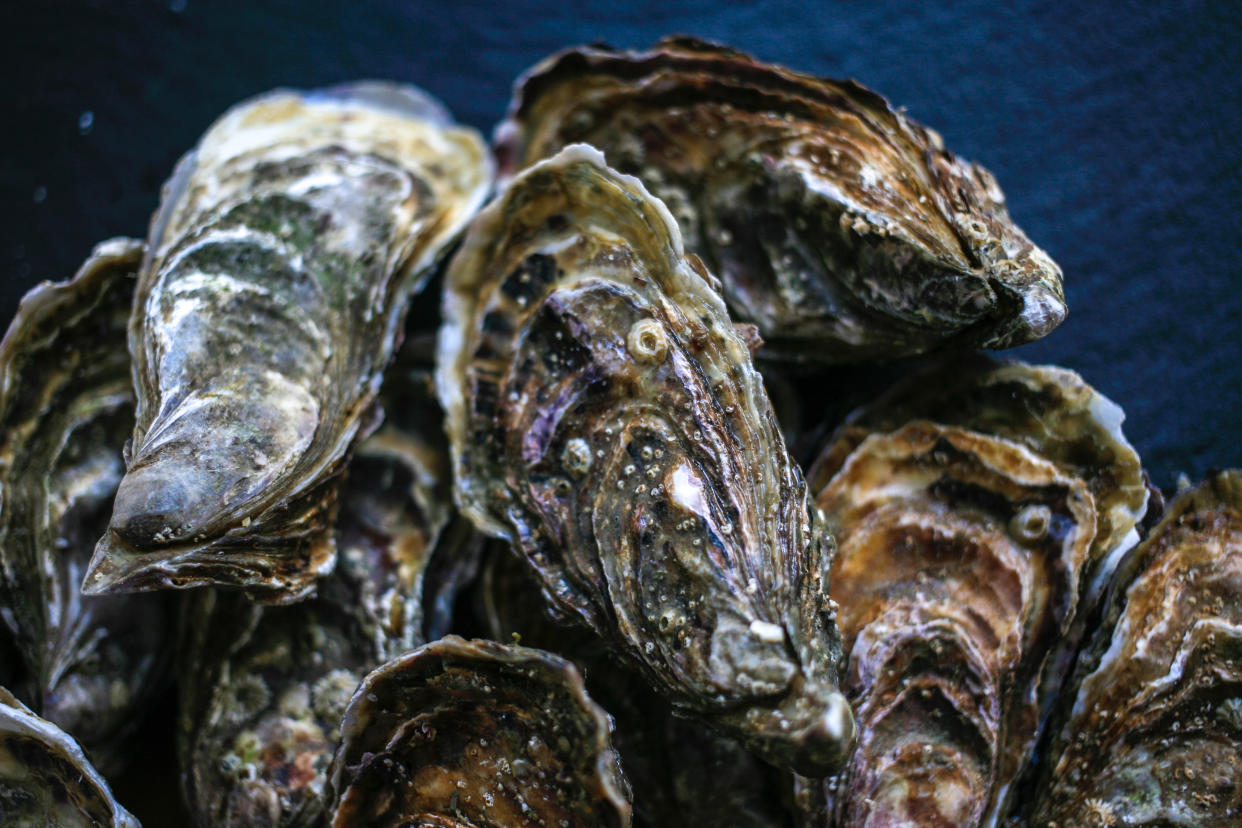The week's good news: Oct. 12, 2023

Conservation group builds reef for 10,000 'ecosystem engineer' oysters
Native oyster reefs are being rebuilt and restored along British coastlines, as conservation groups work to protect shores from pollutants and storm damage. Oysters can filter 50 gallons of water a day, and help ensure a healthy marine ecosystem. Off the coast of Newcastle-upon-Tyne, the Wild Oysters Project used 827 tons of scallop shells to build a reef the size of a soccer field, then introduced 10,000 oysters to the area. Matt Uttley, restoration project manager at the Blue Marine Foundation, said that native oysters are "ecosystem engineers, which means they change and improve the environment around them." They also "create a structurally complex three-dimensional habitat," he added, "which supports an abundance of other marine life and is intrinsically linked with ecosystem biodiversity." Good News Network
Innovative exchange program lets American teens meet their peers across the country
This summer, more than 300 teens packed their bags and headed out for an experience they'll never forget. The American Exchange Project (AEP) pays for "kids to spend a week in the summer after senior year in an American town that is politically and socio-economically and culturally very different from the one that they're growing up in," AEP co-founder David McCullough III told CBS News. Evan Quach is from blue Albany, California, and spent a week in red Dodge City, Kansas. He said during his time in Kansas, he made sure to really listen and think about what people were saying. "A lot of the time you make the most progress in those informal breakfast table conversations and just sharing experiences before bed and things like that," he told CBS News. Quach found that it's important to do things that are uncomfortable, because otherwise, "you're not going to make new friends, you're not going to be able to experience life." CBS News
Indigenous leaders hopeful for the future of the Klamath River
Four dams along the California-Oregon border are being dismantled, following 20 years of protests and negotiations guided by Indigenous leaders. The dams, used for power generation, kept salmon from reaching spawning areas of the Klamath River, activists said, and also allowed the water quality to drop and toxic algae blooms to flourish. "This river is our lifeline," Annelia Hillman, a member of the Yurok Tribe, told the Los Angeles Times. "It's our mother. It's what feeds us. It's the foundation to our people, for our culture. Seeing the restoration of our river, our fisheries, I think is going to uplift us all." One dam has already been demolished, and the rest will be removed in 2024. This is the largest dam removal project in U.S. history, and will include the planting of 13 billion native plant seeds once the reservoirs are drained. Indigenous leaders expect the river will quickly heal itself and once again become a place where fish thrive. Los Angeles Times
Moms launch adaptive clothing line for kids
Nikki Puzzo and Joanne DiCamillo are changing the fashion game. The Massachusetts residents are the founders of befree, an adaptive clothing brand inspired by Puzzo's daughter, Stella, who has spastic quadriplegia cerebral palsy. When Stella was five, she had double hip surgery, and because both legs were in casts with a bar between them, she could only wear dresses or skirts. She didn't want to look at her incisions or braces, so Puzzo took a pair of pajama pants, removed the seams, and sewed in Velcro, so they could fit over her legs. Puzzo told CBS News that Stella's doctor raved about the pants, and said they solved the problem of what to wear after a surgery. Puzzo and DiCamillo asked DiCamillo's mom, who can sew, to help come up with a prototype for pants, and they swapped out Velcro for zippers. Befree's motto is "dress with less stress," and now that they have pants down, their next goal is to make adaptive shorts and jeans, at Stella's request. CBS News
Gaia telescope detects 500,000 new stars
The European Space Agency's Gaia telescope is observing outer space in a way that even its designers didn't expect. Its latest data release shows the telescope has found more than 500,000 new faint stars, over 380 new gravitationally lensed quasars and the locations of more than 150,000 solar system asteroids, Space.com reported. Gaia is creating a comprehensive map of the Milky Way, and has been focusing on the Omega Centauri globular star cluster. The telescope took a broad view of the sky surrounding Omega Centauri, which tested Gaia's instruments in a brand new way. "In Omega Centauri, we discovered over half a million new stars Gaia hadn't seen before, from just one cluster," research lead author Katja Weingrill said in a statement. The team did not expect to use the telescope's instruments in this special mode, "which makes this result even more exciting," she added. Space.com

